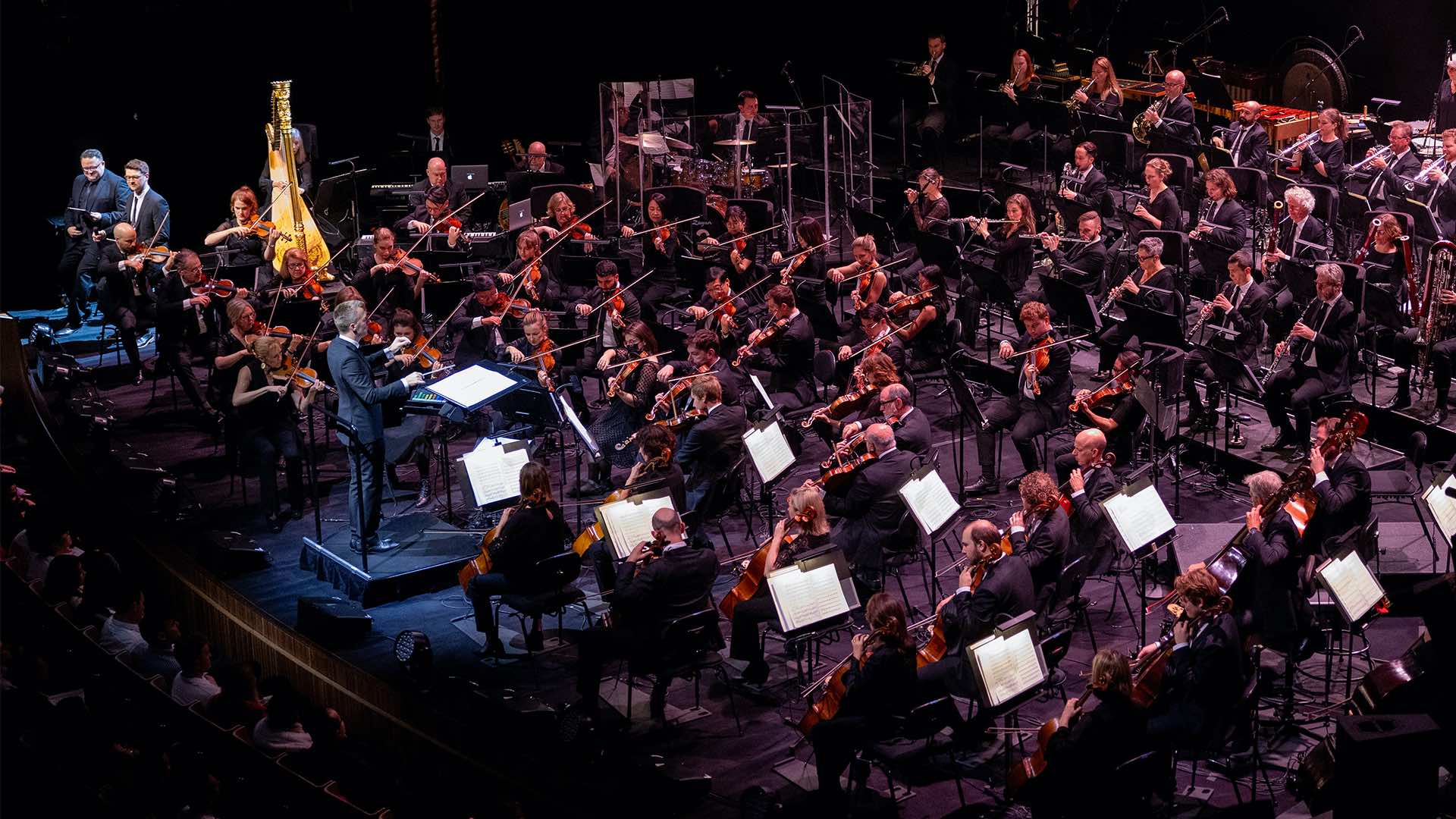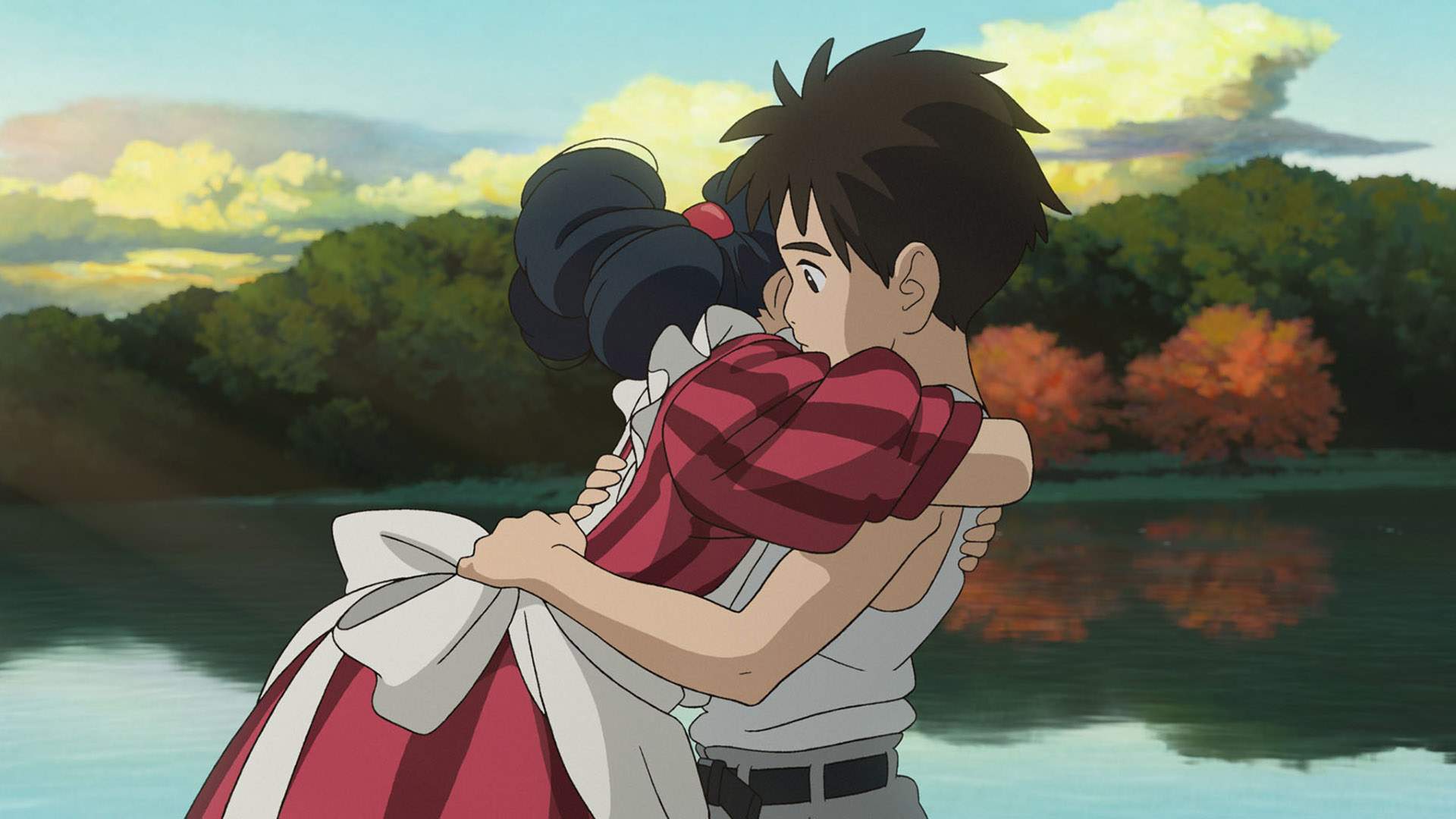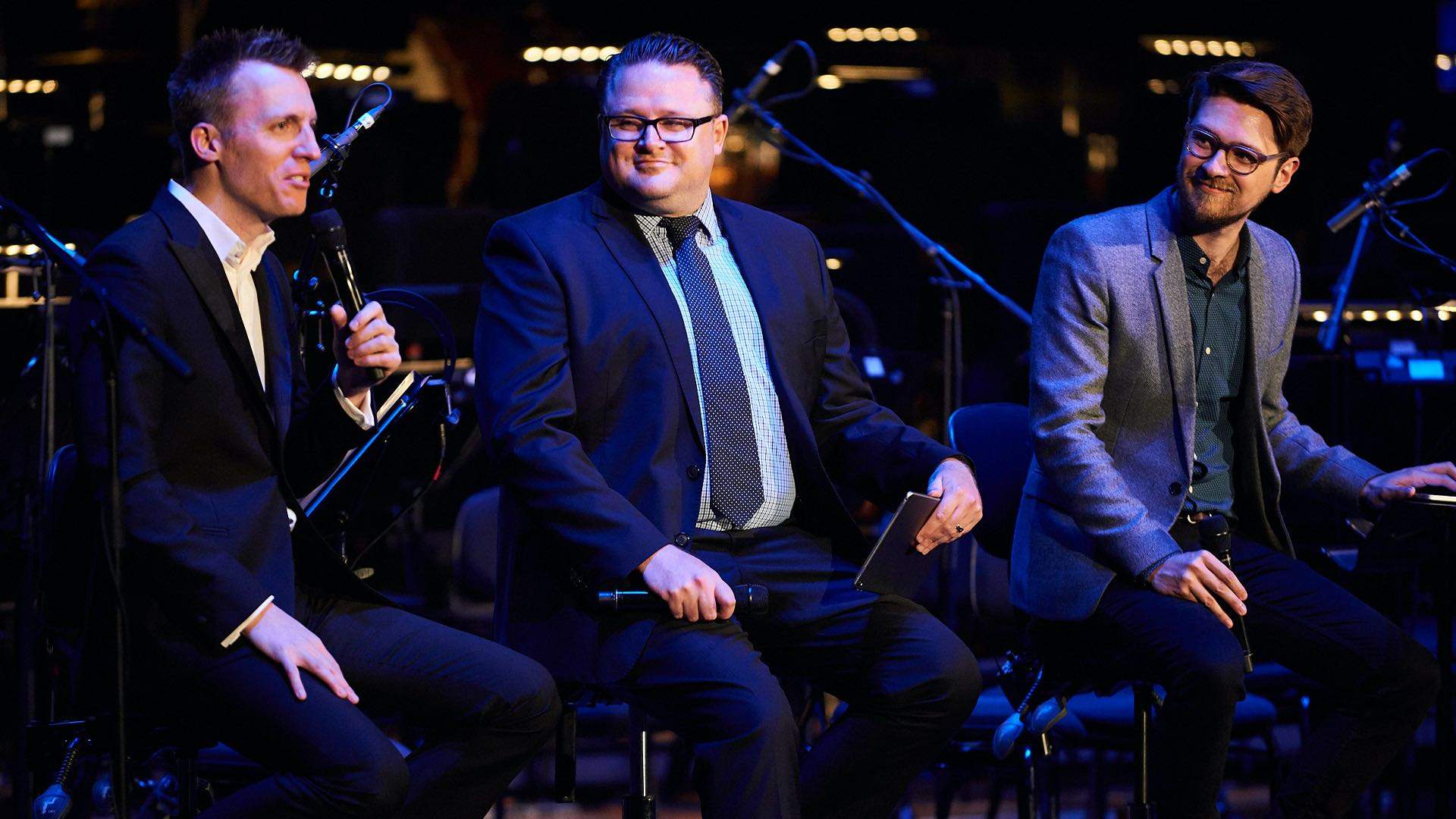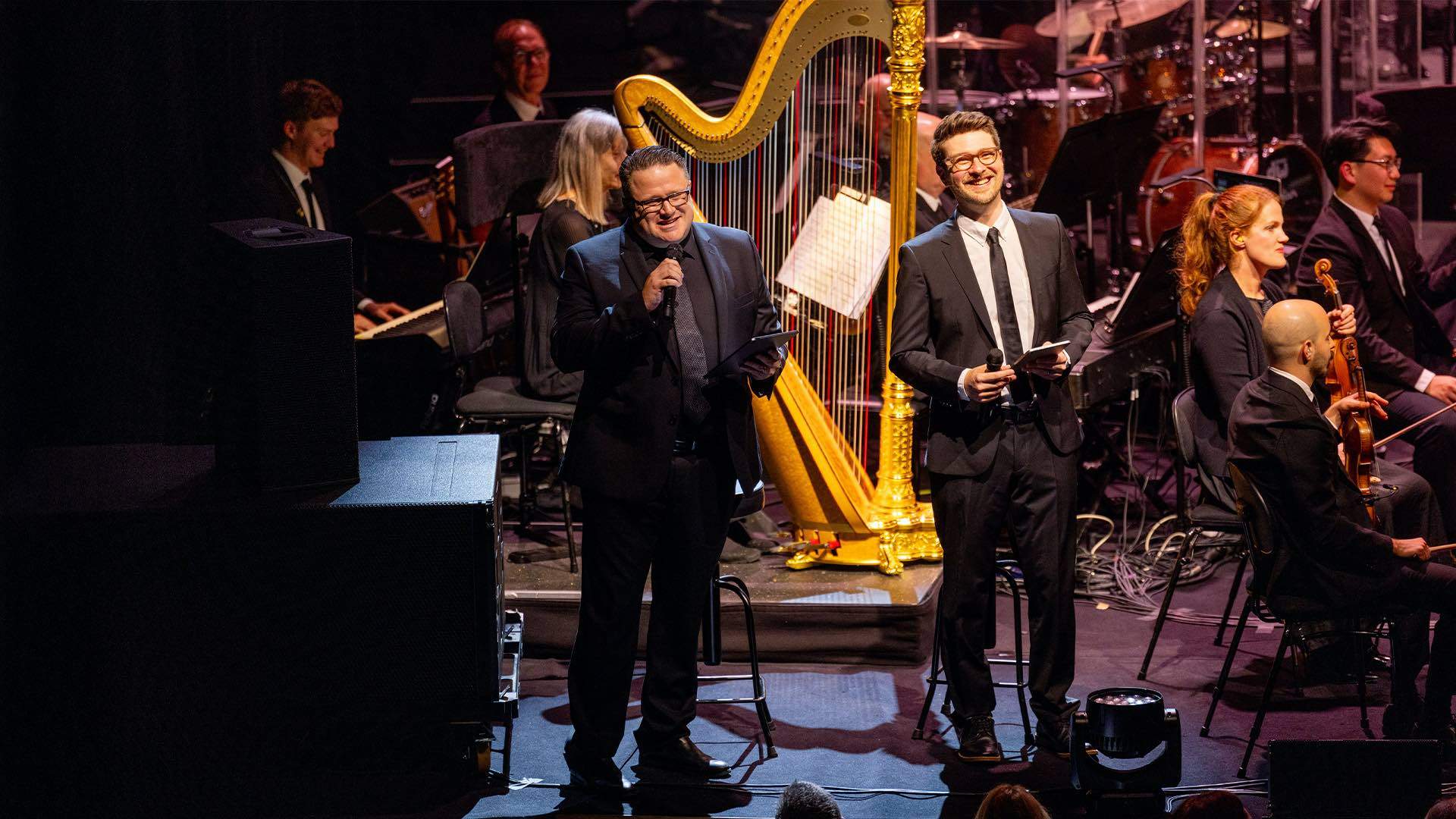Dan Golding of 'Art of the Score' on Magic, Motifs and the Music That Makes Movies Come Alive
An expert on the music behind the moving image, Dan Golding can happily talk about movie soundtracks all day long.
In partnership with
As escapism goes, it's hard to top cinema, where worlds come alive and transport you away like nothing else can. Cinema feels timeless, even though it has only been around for 130 years. At first, films didn't have any sound; to fill the awkward silence, cinemas hired in-house musicians to sit at an organ or piano and play along to the screen - sometimes playing music written for the movie, but often improvising. As time and technology went on, the musical scores began to be recorded and integrated into the film itself.
By now, film soundtracks have become an art form in their own right. Over the past couple of decades, live performances of these soundtracks alongside a screening of the film have become headline events for symphonic orchestras and concert venues worldwide. According to Dr Dan Golding, this trend has brought new life to the orchestral industry.
"This is the primary exposure to an orchestra for a lot of people," said Dr Golding when chatting to Concrete Playground. "And it means that this is the way that a symphony orchestra is part of the cultural life of a city. I've been going to the Melbourne Symphony Orchestra since I was three. I love classical music…I've never seen an audience react to anything like they did to Home Alone when that was first performed by the MSO."

Andrew Pogson and Dan Golding (left) host the Sydney Symphony Orchestra conducted by Nicholas Buc.
Dr Golding is a published author, critic, the Chair of Media and Communication at Swinburne University and a composer — having developed the soundtrack for the immensely popular indie game Untitled Goose Game. He's also a co-host of the podcast Art of the Score alongside Andrew Pogson and Nicholas Buc.
Together, they'll be taking to the Sydney Opera House stage in September to dissect, discuss and dive deep into the music of Japanese composer Joe Hisaishi alongside the Sydney Symphony Orchestra. Ahead of that, we spoke to him for his two cents on the music that makes movies come alive.

On the Origins of 'Art of the Score' and Taking the Show Live
"I didn't know Nick before [Art of the Score]. Andrew did. Andrew knew each of us independently of each other. And what would happen with Andrew and I is that we would meet up for lunch and about three hours later we'd be finished dissecting the latest soundtracks that we were interested in.
The way that I understand it, the same thing would happen with him and Nick. I think Andrew just was like 'we should start a podcast to talk about this stuff', because at that point there weren't many good film soundtrack podcasts.. And we would do some talks for the MSO, when they were doing a film concert.
But it's a different scenario. Winning over a crowd and feeling like you're not getting in the way of the music. That's really important because not everybody comes to see an Art of the Score show. They want to see the music, and that's the most important thing. So we're there to kind of help amplify that and help give someone a better experience, a more guided experience."
On the Difference in Composing to Picture Versus Composing for the Concert Hall
"I think that composing to picture, composing for video games, there's another need that you're taking into account, and that's the need of the media … although you can make the argument that when Mozart's composing for the King of Austria, the King of Austria is his number one audience, in the same way as maybe a director is in a film.
I think about the audience a lot. With a classical piece of music, it's not to say you wouldn't think about the audience, but it's maybe a more holistically coherent work because you have that luxury of presenting just the music by itself. But I think that for games and for film, you're always bouncing off of something else. You're reacting to somebody else's creative vision. And often, especially in film, you're composing to, what we say in academic terms, a linear piece of media.
That said, I don't think any of that makes it artistically more or less coherent or valuable. I'm not interested in the [argument] that film music is lesser or video game music is lesser because it's not as artistic as something composed for the concert hall. I just think that's so short-sighted."


On the Role of Joe Hisaishi's Music in the Popularity of Hayao Miyazaki and Studio Ghibli
"You can think of Hayao Miyazaki and Joe Hisaishi as being one of the great composer-director relationships in film history. Truly the same category as Steven Spielberg and John Williams, or Alfred Hitchcock and Bernard Herrmann. It's also the rare instance where I think all of Hisaishi's feature films have been done by Miyazaki, so they've developed a voice together.
I think that Hisaishi's music is so full of emotion and a kind of vibrancy and life, while a lot of Miyazaki's images are quite still — there's a really beautiful kind of interplay between the two that creates a kind of audiovisual experience that's not really reducible to one or the other. It creates something more than the sum of its parts. I think Miyazaki and Hisaishi together create something that would be lesser without one or the other."
On the Unifying Magic in Hisaishi's work
"I think that there's something about the depictions of nature in the Studio Ghibli movies that Hisaishi's music really brings out. And then there are those melodies which are, you know, earworms sometimes in the case of My Neighbour Totoro, Ponyo or Howl's Moving Castle. That tune has led a whole new life on TikTok and social media in the last couple of years."
Is there a universal trait across his compositions?
"Yeah, absolutely: piano. If I was to do a very silly reduction of his work: it's like a lush orchestral swell with a bit of rhythm out of it that sort of comes to a head, and then a very spare piano melody that comes out of that. The piano in his music just has a way of cutting through.
I think that's also part of it being animation, [which] tends to have much more lively soundtracks. But his music calls attention to itself, which I love. It's not always in vogue with Hollywood, which loves to have music blend into the background."

On What Audiences Can Look Forward to with 'The Music of Joe Hisaishi'
"So we're there on stage as hosts, getting out of the way of the music, but also providing a bit of a guide to the music and helping audiences have some context for some of the pieces that they might not have heard before. The show has a lot of Studio Ghibli, of course, but because it's a concert portrait of the composer, we've also got a whole bunch of other stuff in there.
We're going to have some work of his that isn't film music that might be drawn from other media. He's done some TV and video game work, some work for advertising and some work for the concert hall. So, [there will be music] illustrating the broader life of the composer and his creative work, but at the same time, [we'll be] finding a bit of fun in it as well. We like to get the orchestra to do something that they're not supposed to do — it gives you that insight into the creative process of these things."

Tim O'Connor

'The Music of Joe Hisaishi' will run performances from Thursday, September 25 to Saturday, September 27, at either 7pm or 2pm, produced in association with Concert Lab. For more information or to book tickets, visit the website.






